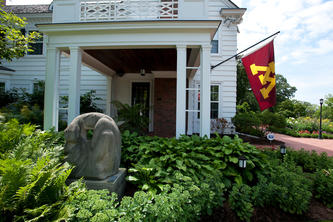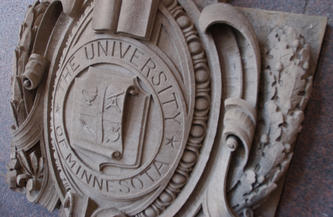
Six months after the University of Minnesota Board of Regents approved a COVID-adjusted annual budget, systemwide financial and human resources leaders updated the Board during meetings this week on how that budget withstood challenges since July. Leaders also discussed cost-saving recommendations for the coming six months and considerations for next year’s budget.
President Joan Gabel’s Finance and Operations Work Group provided data reflecting actions taken by the University to reduce the significant financial challenges presented by the pandemic. Across the five-campus system, these actions have included a pause in hiring, an incentivized retirement program, suspension of merit pay increases and other augmentations, and a furlough and pay reduction program weighted more heavily toward the University’s highest earning employees. The University intends to continue these actions through June, which are projected to save the University approximately $60 million this fiscal year.
The Board revisited additional Work Group recommendations for the long term, including exploring how to better leverage shared services within the University, using University technology to realize efficiencies and capture cost savings, and renegotiating large contracts, among others. Regents also reviewed plans to address current year projected shortfalls that will include budget cuts, applying operational savings, and central financial support and loans.
An analysis of revenues and expenditures in the current fiscal year make this comprehensive approach necessary. Taking into account tuition revenue estimates, other earned revenues affected by the pandemic and new or increased expenditures necessary to respond to COVID-19, the analysis projected a total shortfall of approximately $166 million compared to the COVID-adjusted and approved budget.
In addition to an examination of the current financial status of the University, the Board began to consider revenue and expense variables that will impact budget planning for Fiscal Year 2022. The administration will develop a recommended FY22 budget this spring and early summer for consideration by the Board in June.
Nation-leading student retention and graduation rates
The University’s academic leaders highlighted record-setting student retention rates and four-year and six-year graduation rates on the Twin Cities campus during the Board’s review on Friday of the University’s annual accountability report.
The Twin Cities campus has managed the largest improvement in four-year graduation rates among all doctoral-granting institutions in the country over the past two decades. According to the most recent data, 72.7 percent of undergraduates completed their degrees in four years (nearly double the rate from 15 years ago), while 84.5 percent did so in six years. Both of these numbers are the highest they have ever been at the University. The UMTC has also seen continued improvement with graduation rates for students of color.
Student retention rates in the Twin Cities have shown equally strong growth over the past 15 years, improving from 87.6 percent in 2004 to 93.5 percent in 2019, a record-setting number. The UMTC also experienced a campus-record 87.9 percent retention rate for transfer students.
“The University has strategically invested tremendous time and resources to support continued improvement in these key indicators of student success,” said Board Chair Ken Powell. “By focusing on excellence, access and affordability, by committing to the student experience, and by emphasizing timely graduation, we have seen nationally recognized growth in these areas. We’re incredibly proud of our students and alumni, and the faculty and staff who have supported them every step of the way.”
The Board also:
- Approved a revised recommendation from Gabel for the University’s 2021 State Capital Request and the University’s FY21 Capital Improvement Budget.
- Discussed guiding principles for future campus master planning for the Twin Cities campus and across the system.
- Approved collective bargaining agreements with two employee groups represented by the Graphic Communications Conference International Brotherhood of Teamsters.
- Received the annual report on the University’s research and technology commercialization work, a report that included record-breaking research expenditures according to the most recent fiscal year data available and a record-tying number of startup companies spun-off from the University.
- Received a report on student career readiness initiatives and outcomes of this work, along with ideas for how it can be amplified in the future.
- Reviewed proposed amendments to Board policies relating to alcohol sponsorship and licensee agreements.
- Reviewed proposed progress measures aligned with MPact 2025, the University’s systemwide strategic plan.
- Discussed public safety on and around the Twin Cities campus in an update from University of Minnesota Police Chief Matt Clark.
The Board of Regents’ next regularly scheduled meeting is Feb. 11-12, 2021. Visit regents.umn.edu for more information.
- Categories:
- Campus Affairs





